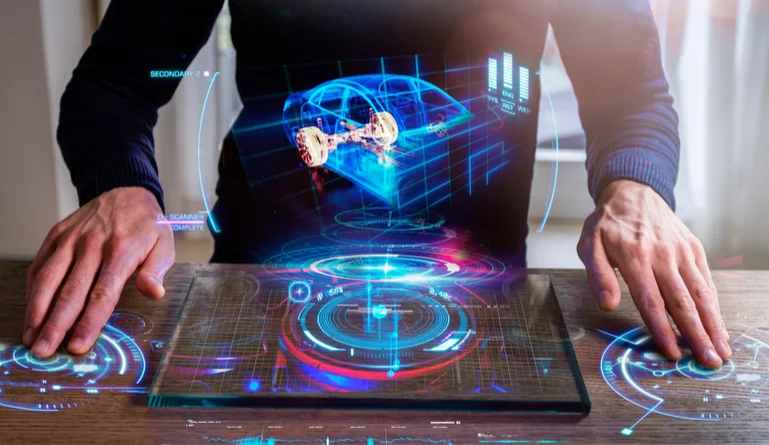Technology almost every sector of business is just about every industry. This is changing how people live their lives, how they run their businesses, and even how the infrastructure that people and businesses rely on is designed. One example is the transportation industry. Technology has made a significant impact on how the transportation ecosystem – cars, trains, buses, planes – are being developed and used.
Much of this technology has been created specifically to serve a customer need – automatic stopping features in cars, for instance, that help to prevent accidents. Other technology has been pulled from other segments of business and applied to transportation for convenience, like built-in Bluetooth technology. Finally, some technology has been implemented to address things like environmental concerns and the effects of environmental pollution.
The effects of technology on the transportation ecosystem.
Here are some of the most impactful technologies that have disrupted or changed the transportation ecosystem, as well as new transportation technology that might be seen in 2019.
1. Autonomous/self-driving vehicles
Companies like Google and others have been experimenting with and developing self-driving car technology for years. While it still hasn’t been developed enough to function in place of person-driven vehicles, the technology has the power to change parts of the transportation ecosystem, including fewer accidents by both personal and commercial vehicles. It also has implications for the trucking industry, as self-driving trucks wouldn’t need to stop en route in order to let drivers reset, allowing for faster, cheaper shipping. Of course, the downside would be a loss of transportation jobs.
2. Alternatives to owning vehicles
Technology has made it easier for people to opt out of owning a car and simply use on demand. Apps like Getaround let users rent out someone else’s car for short periods of time, using only their smartphone. This has the possibility to reduce gas emissions and be more environmentally friendly, as more people move to the idea of car-sharing or communal car access.
3. Hybrid and electric vehicles
Hybrid and electric vehicles have been around for many years, but the technology continues to advance, allowing car manufacturers like Tesla to offer cars that aren’t just eco-friendly, but also high-performance, which was lacking in earlier models and is what many car drivers still want in their personal vehicle.
4. Connected vehicles/smart cars
Bluetooth isn’t the only way that cars are connected anymore. More and more cars are being equipped with technology that allows cars to digitally understand where both infrastructure and other cars are on the road to enable safer conditions.
5. Gig economy drivers
The gig economy wasn’t launched by apps like Uber and Lyft, but it’s now synonymous with it. These rideshare apps have changed the transportation ecosystem drastically, from allowing people to connect with more transportation options to letting individuals create extra income for themselves. This has had an impact, even, on the general economy beyond transportation.
6. Blockchain in logistics and transportation
As Blockchain technology advances and is adopted by more industries, it can create better digital record keeping for industries such as the logistics, transportation, and supply chain management sector. Blockchain keeps shipping and processing errors down and can help create more streamlined deliveries, all which can elevate the customer and client experience and save money for the transportation providers.
Technology – from apps that communicate with cars, to cars that communicate with infrastructure systems, to software that allows cars to drive themselves – has developed rapidly over the past two decades with no signs of slowing down. The effects in the transportation market have been felt by most people or businesses in some way and the transportation ecosystem will likely only become more technologically advanced as time goes on.





